

Omanis, both men and women, are busy around this time of the year, processing the fruits of their palms, which vary in different colours and flavours. They cooperate in collecting palm products and then share their roles to work with team spirit.
The harvest of palm fruits goes through several stages, starting with the so-called Al Takleem, which is the pruning of the palm with a sickle after removing the dry fronds and the fibre around its bases, that are prone to diseases and insect attack.
Then comes the stage of Al Tahdeer that involves tying of lower leaves to the stem with a rope. This is done to protect the fruits as they gain weight.
Then comes Al Kharaf, which is the process of harvesting the fresh dates. It is carried out at regular intervals and it lasts more than four weeks.
The major operation, Al Jadad, is the stage when the dates are harvested cut with a sickle or shear. Families, comprising men, women and children, join together on this occasion and ease their work by singing popular songs.
After harvesting the dates, farmers take them to their houses, after which the fruits are cleaned, washed and spread on mats to dry under the sun.
The summer season in the country is the time when most of the economic activities take place as far as farmers are concerned.
The last stage of harvesting is Al Kenaz, which is stacking the dates after purifying and filtering them in palm, pottery or plastic containers. In the past, grandparents used to put palm leaves in a room where there was only one door, which creates high pressure and heat that causes molasses to flow in basins.
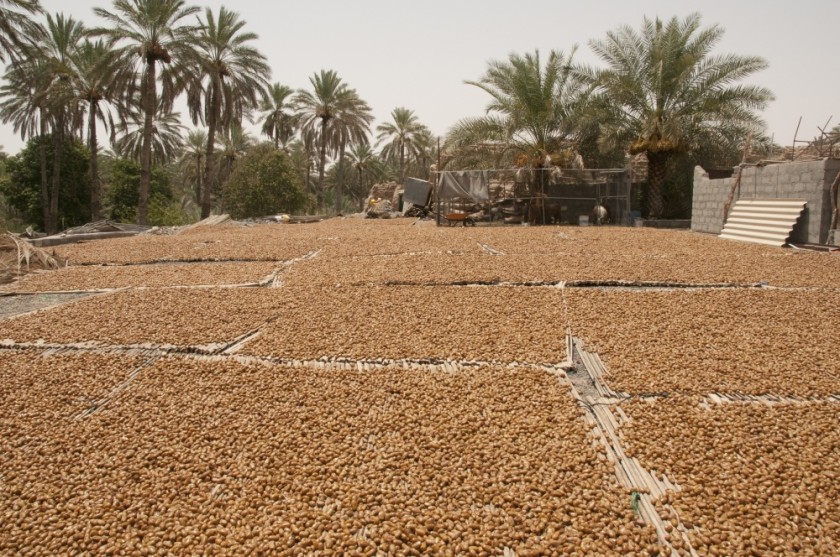
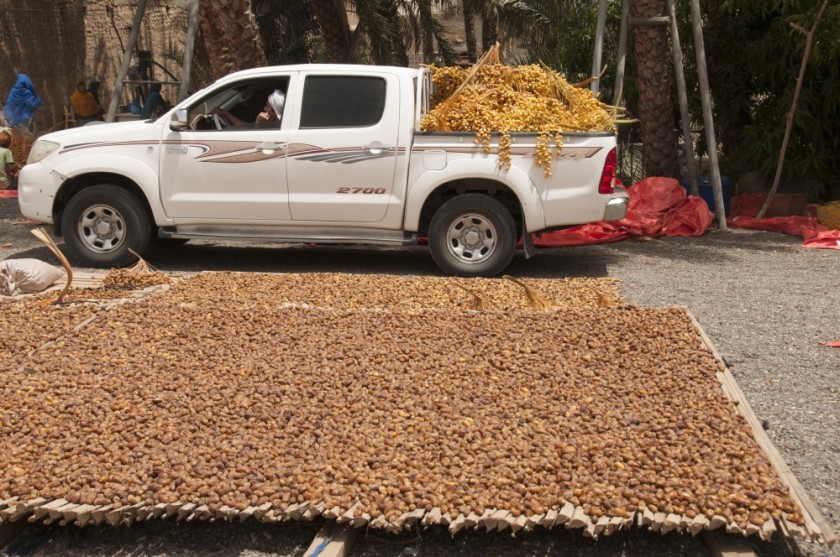
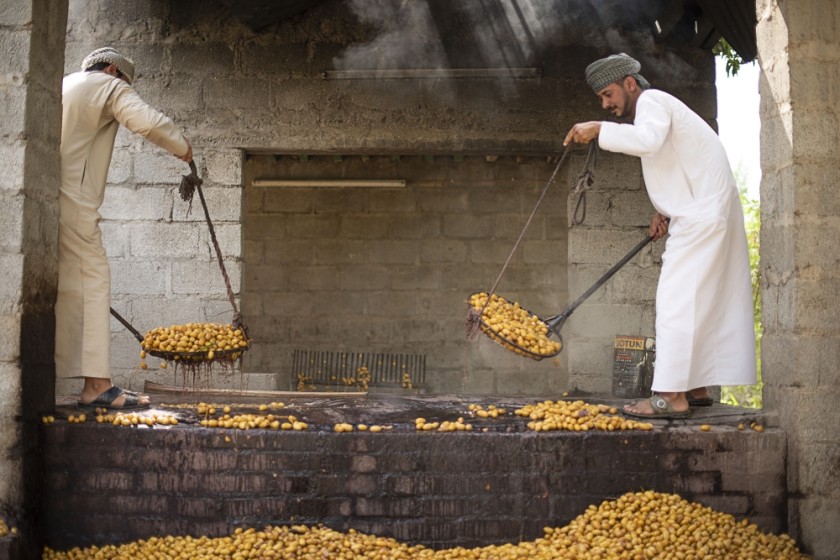
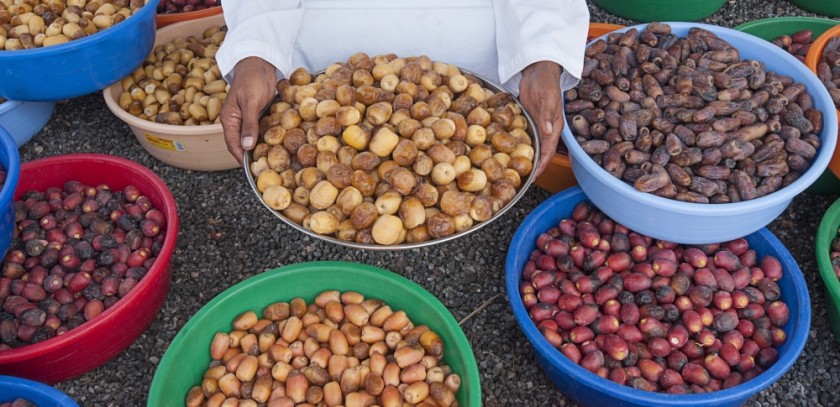
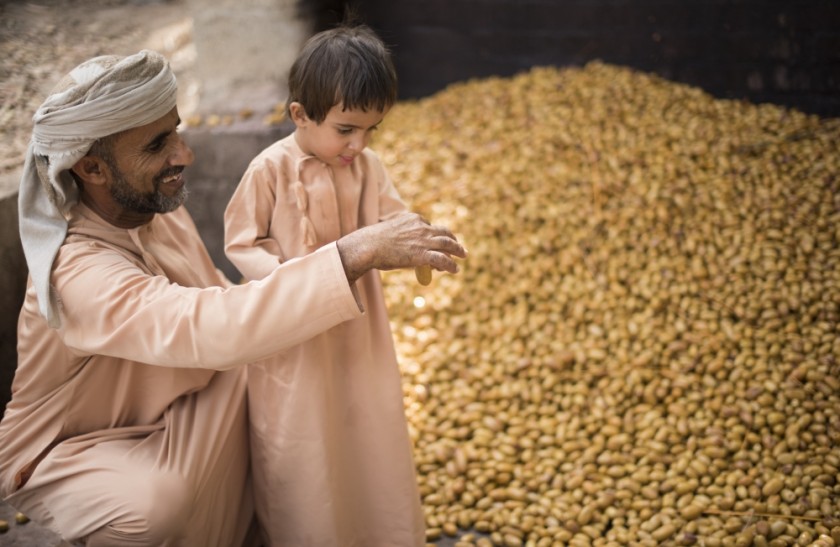
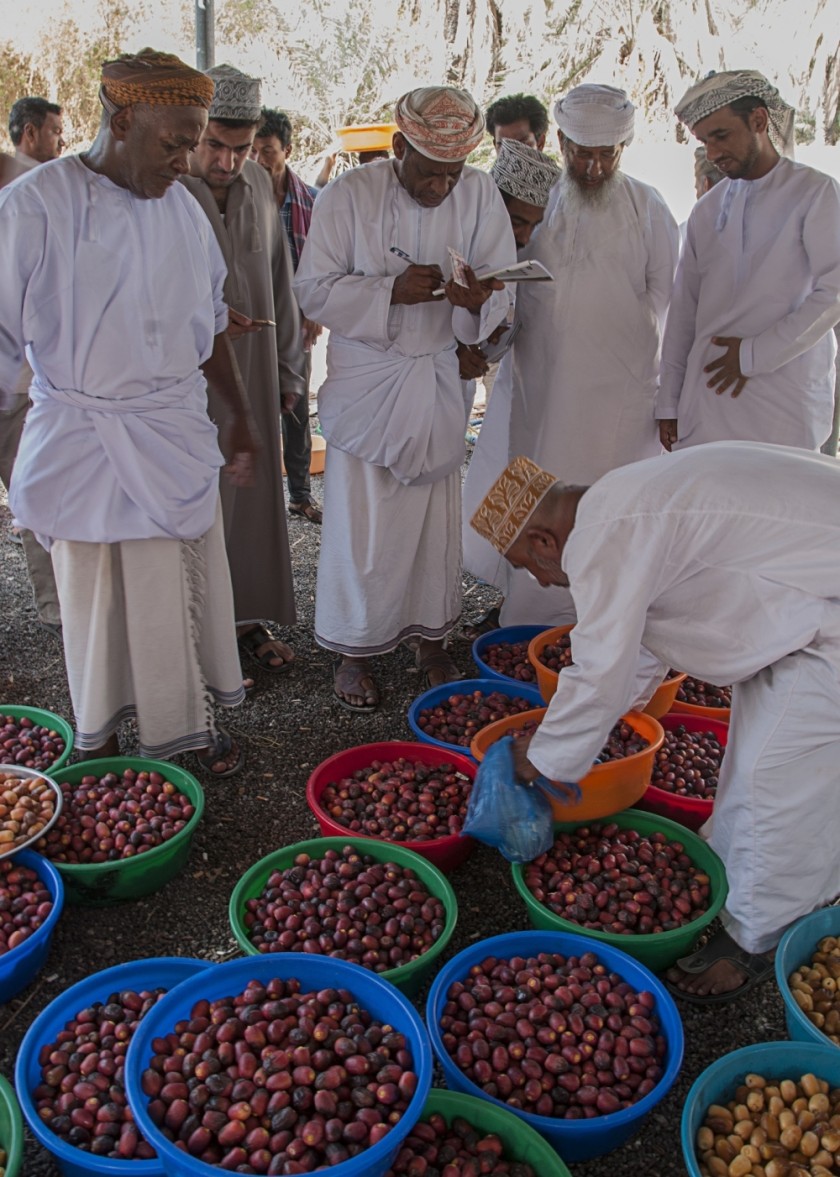
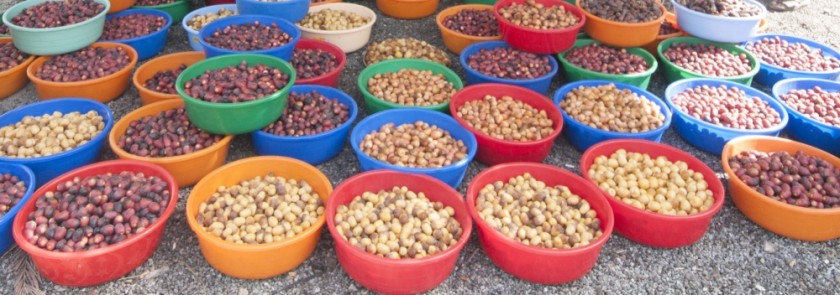
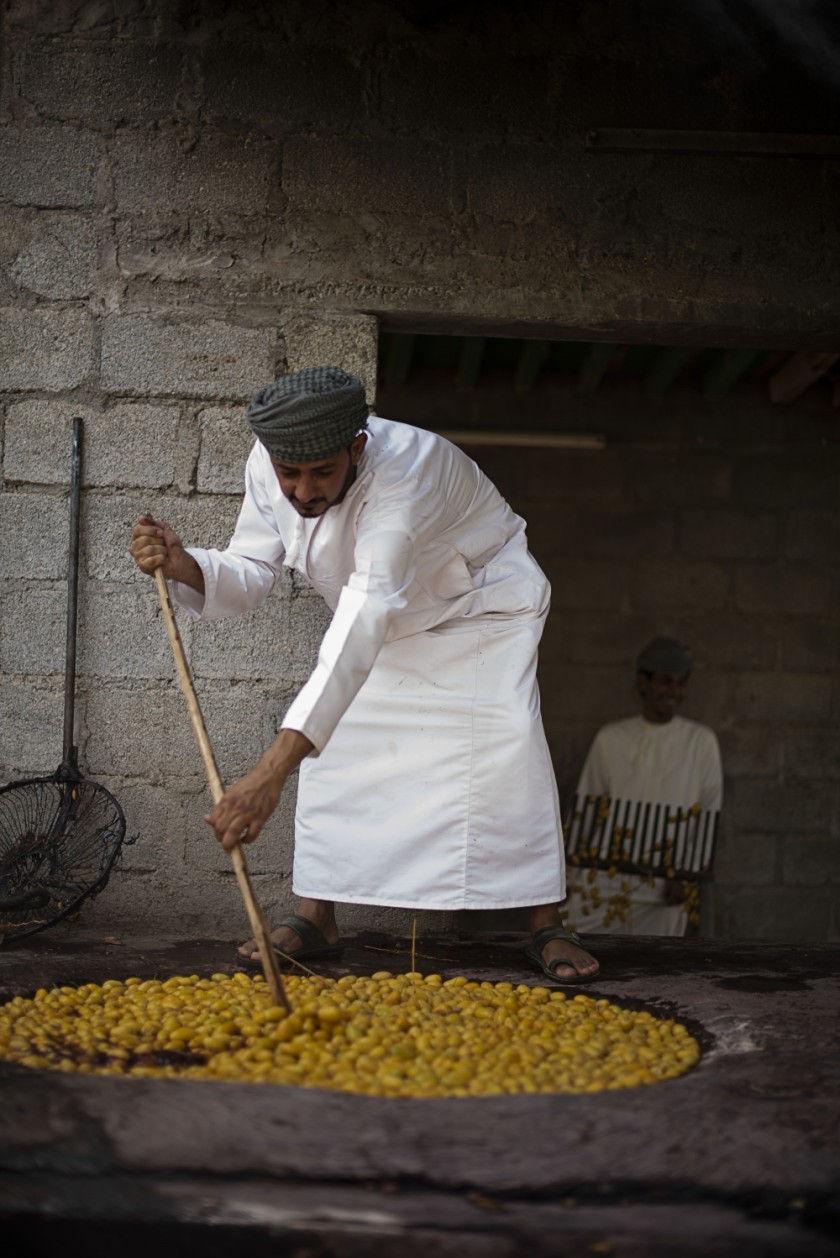
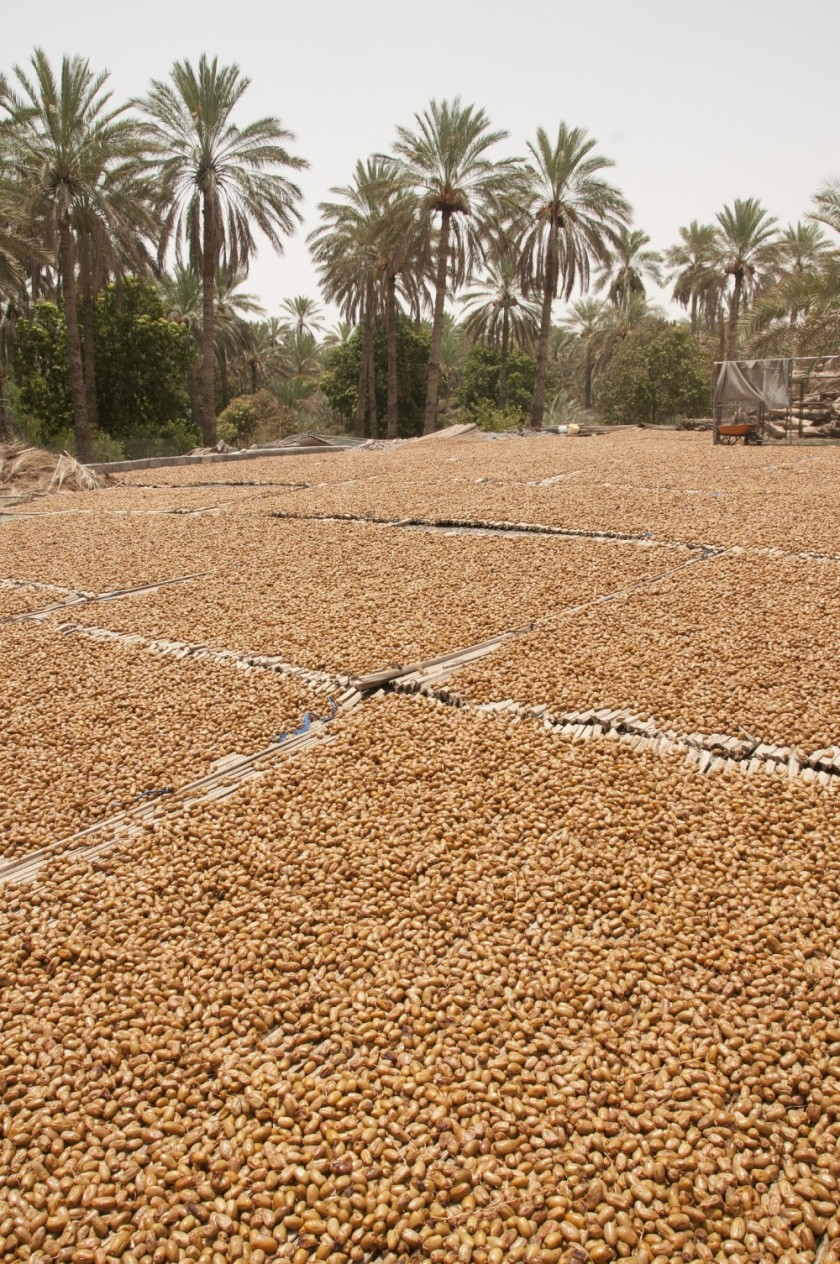
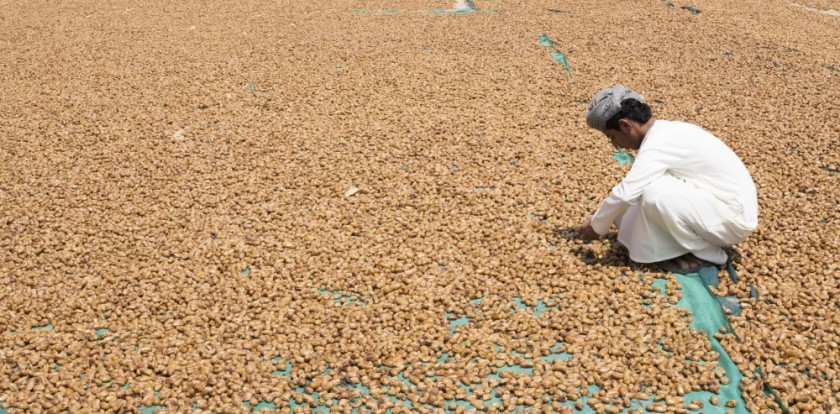
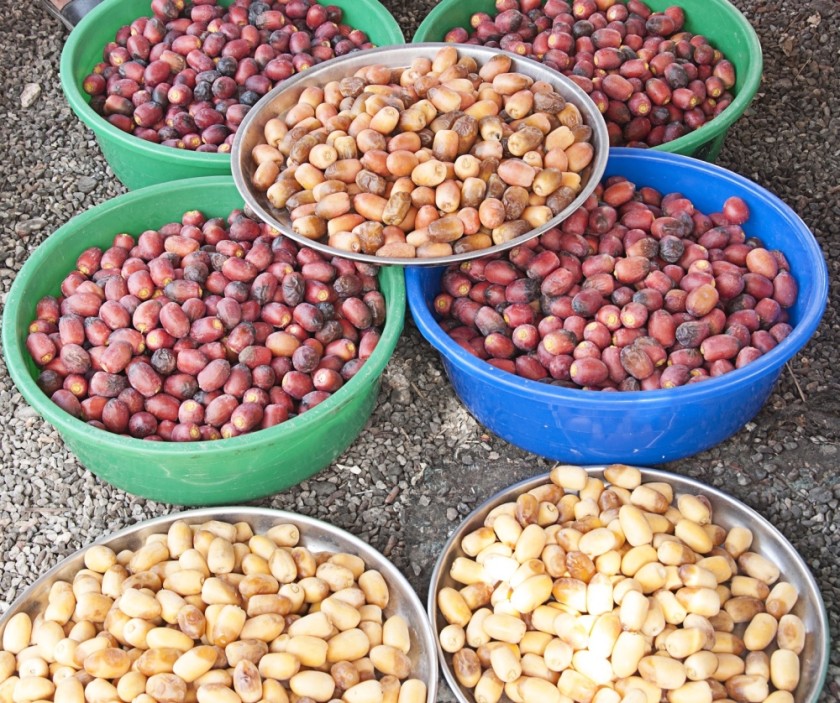
In recent years, another way to preserve dates has emerged, which is to use the refrigerator, but the elderly prefer to save them in the traditional way. Omanis store dates for consumption in the winter season, when there is no wetness, and an Omani house is not free of dates, which are a basic food item. They are served with Omani coffee to honour guests in public and private councils, various events and in the markets (internal and external markets).
During this season, which begins by the end of May and continues until September, and sometimes continues until November, approximately 250 varieties of date palms can be harvested, the most famous of which is Al Fardh, in addition to Al Khalas, Al Nagal, Al Barni, and Al Khunaizi. Omani dates have been famous since ancient times, with its high quality and distinctive taste, which made it constitute a large portion of Omani exports to various parts of the world.
Among the most famous operations carried out by Omani farmers is the Al Tabseel process, which is a traditional process that relies on boiling palm products and then storing and marketing them through stages approved by the competent authorities in the Ministry of Commerce, Industry and Investment Promotion. Everyone works in this profession, young and old, women and men, making it is a wonderful example of cooperation.
All farmers assure that this year's yield is very good due to the frequent rainfall, which facilitated access to water in abundance.
TEXT & PHOTOS BY YAHYA AL SALMANI
Oman Observer is now on the WhatsApp channel. Click here



